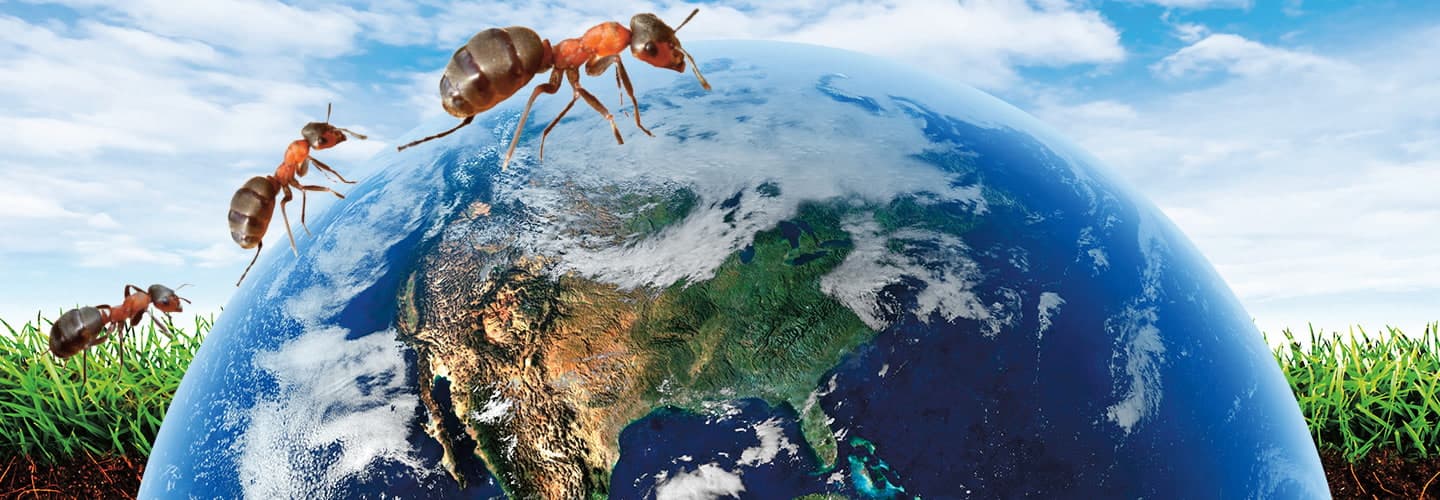Ants! They seem to be everywhere—on trees and lawns, on benches and sidewalks, and maybe even in your kitchen.
But how many of these tiny insects are on our planet? Thanks to a recent study, scientists think they have the answer: more than 20 quadrillion. That’s 20 followed by 15 zeros. That means for each living person, there are about 2.5 million ants!
Scientist Patrick Schultheiss led the study. He and his team calculated that giant number by examining data that had been collected about ants around the world over eight years.

